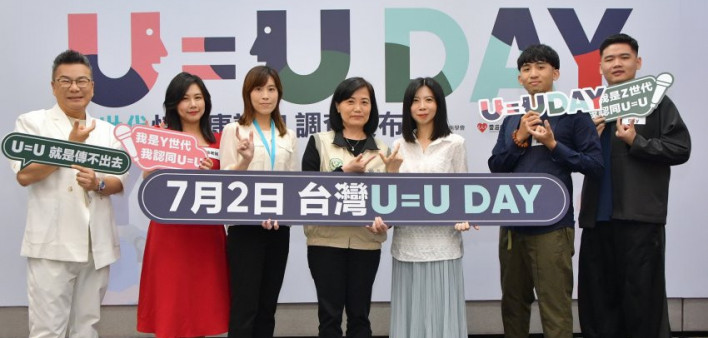The rate of new HIV diagnoses in Taiwan have declined since 2018, and there’s been a combined effort on multiple fronts to tackle this. This is in response to Taiwan’s recent progress towards the UNAIDS 2025 target of 95-95-95 (95% of people living with HIV know their status, 95% are on HIV treatment, and 95% have a suppressed viral load). Advocates say the country’s most recent result of 91-96-95 shows impressive gains but that HIV testing needs improvement.
With 80% of HIV transmission caused by sexual activity, the country’s CDC has encouraged those who have experienced a sexually transmitted infection or have multiple partners to test for HIV every three to six months. It also offers a PrEP program to those most likely affected by HIV, alongside setting up free anonymous testing.
It’s an impressive feat. While the CDC has been advocating for increased testing and prophylaxis, the Persons with HIV/AIDS Rights Advocacy Association of Taiwan, also known as PRAA, set up the National U = U Day on 2nd July, based on the undetectable = untransmittable campaign. PRAA organized this day to dispel myths and stigma related to HIV and to educate the public on the modern-day reality of living with HIV. Fletcher Chiu, Director of Communications at PRAA, discusses why U=U is important and the aims of the National U = U Day.

Unlikely many other U = U campaigns, the Taiwanese National U = U Day focuses on the general population, rather than key populations that are most affected by HIV. Stigma and a lack of knowledge of HIV remain a challenge, and those perpetuating stigma or out-of-date information usually aren’t those affected by HIV in Taiwan.
‘For a U = U Day, we wanted to create a safe space to talk about HIV and U = U, like the idea of Pride. It’s the day that if you go on the street and talk to anyone around you, people wouldn’t be suspicious about why you bring this up.’
The first National U = U Day in 2023 addresses stigma directly. Members of the public were invited to put their hands into a box, a metaphor that the unknown is scarier than reality.
‘We collaborate with a TV program show and do the like experimental video on the street to invite people to put their hands into like, scary box - a concept that’s a lot like HIV. Within the box is something you cannot see, and you don’t know. When you don’t know, you’re scared and afraid, but once you open it and see what it is then it’s not scary.’
It’s a metaphor that’s particularly true within Taiwan. For this year’s National U = U Day, PRAA commissioned a survey to create a baseline on HIV awareness and the meaning of U = U among the population. Only 44% of those surveyed agreed with the statement: do you agree that a person living with HIV taking medication regularly with undertaking cannot transmit the virus? 21% would choose to avoid physical contact when learning about one’s HIV status.
Like around the world, Taiwan is battling the stigma that health campaigns of the 1980s and 1990s generated as deterrents for ‘unsafe’ behavior among high-risk populations. While the information in these health campaigns is out of date, their impact is still being felt.
‘Taiwan had a big influence from Western society, so the UK and America. It was linked as a gay cancer-type mindset that transferred to Taiwan. The general population still thinks that HIV just affects gay men or those who are sex workers, have multiple partners, etc.’
It was this mindset that was weaponized in 2019 when Taiwan became the first Asian country to legalize same-sex marriage. In the run-up to the referendum, the opposition would attempt to conflate HIV, gay marriage, and universal healthcare on social media platforms, such as Line. Its those conflating these issues that gained a lot of traction.
‘What the opposition used was HIV. They claimed that if you pass the marriage equality, that will make Taiwan an island of AIDS. People living with HIV would fly to Taiwan to get married to Taiwanese just to get the HIV treatment for free.’
This isn’t helped when various institutions are still using outdated facts about HIV. This is either an oversight or the change is simply not seen as a priority. The PRAA is hoping to address this by raising awareness of these shortcomings through the U = U Day.
One such area is criminalization, where people with HIV may be prosecuted for having ‘unsafe’ sex without disclosing their status. According to HIV Justice Network, as of 2019, there have been 20 prosecutions. Of those, 17 were a guilty verdict, and 3 were acquitted.
‘HIV non-disclosure is criminalized in Taiwan and the longest sentence given is over 10 years. For that person who was put into jail, he was undetectable at the time. He was found to be having sex with different individuals and each individual that he had sex is seen as a single sentence, and it adds up to a longer final sentence.’
PRAA is also focused on improving HIV education among those in the healthcare industry, where people living with HIV have said they’ve experienced stigma from a healthcare provider.
‘You don’t disclose your status on common occasions in your life, but you do disclose it when you go to a healthcare setting by law. From our survey, what we see is that the healthcare setting is the most common place where people experience discrimination and it’s around 20% [of respondents of a 2020 survey on perceived discrimination].
One such healthcare setting is dentistry, where healthcare assistants may not have been to medical school and are training with individual dental clinics directly, where training on HIV is lacking or not taught at all.
‘That’s usually why how the clinic owner may make a claim [when challenged by PRAA on refusing to treat HIV positive patients] like “my healthcare assistant is scared that the patient is HIV positive” and that’s what we want to do more education on. It’s just a mindset you have to change.’
2024 marks Taiwan’s second National U = U Day. With an improved focus on testing from the country’s CDC, and organizations such as PRAA to help educate the public and institutions on the modern-day reality of HIV, Taiwan is on the right course to hit its UNAIDS target of 95-95-95 by 2025. If you’d like to learn more about the National U = U Day, or what services PRAA offer in Taiwan, visit their website.








Comments
Comments